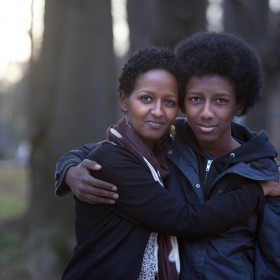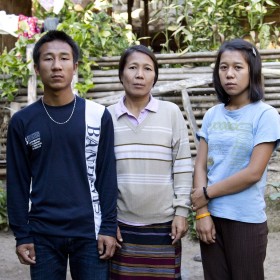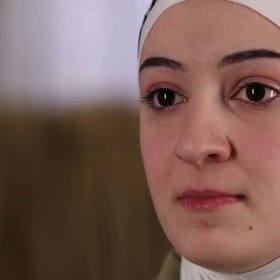Marzia’s Story, Central African Republic

Photo by UNHCR/2014.
There are many difficult aspects in humanitarian work: the distance from family and friends, the working conditions in the field, and the communication problems at places with no Internet, phones or electricity. The main difficulty though is when we don’t manage to address the needs of refugees, not because we don’t have the capacity, but due to external factors, like security problems which prevent access. Assistance is not only about non-food item distribution, site management or registration, but about spending time with the people of concern, to show them that they are not alone.
One of the most rewarding moments of my work came before, when I was working with Central African refugees as a Protection Officer in Douala, Cameroon. While identifying reinstallation cases, I met a woman who had survived sexual violence twice by an armed group, and also her mother who had been wounded by a stray bullet. Their tragic story touched me, but, of course, I was always impartial and following the procedure. The family fulfilled the reinstallation criteria and would go to Canada, where one of the woman’s sisters lived. During the long and complicated reinstallation process, one day the sister sent me an email. I consider the letter as one of the most rewarding moments in my work, as it recognized my efforts both as UNHCR staff and as a person.
“Your work gives hope to my mother and my compatriots,” said the email. “Beyond that, though, you treat them with respect and kindness, far from any condescension. Despite the difficulty of your job, you remain human. This is what they perceive. If my mother could write to you a card, she definitely would. But she doesn’t dare. In Africa, our mothers often ask us to write letters for them. Our tradition is oral, Madame, so the thanks that you hear or the embarrassed smiles that you receive hide great amounts of gratitude.”
Marzia Dalto
Associate Protection Officer
UNHCR Kaga Bandoro, Central African Republic









